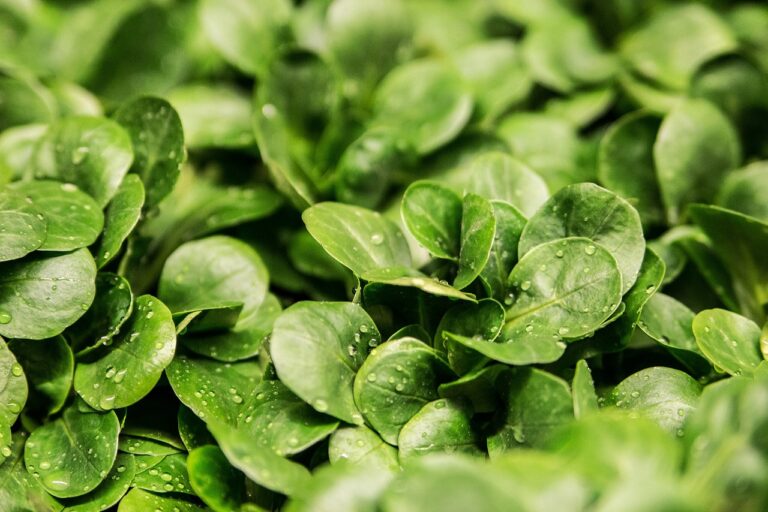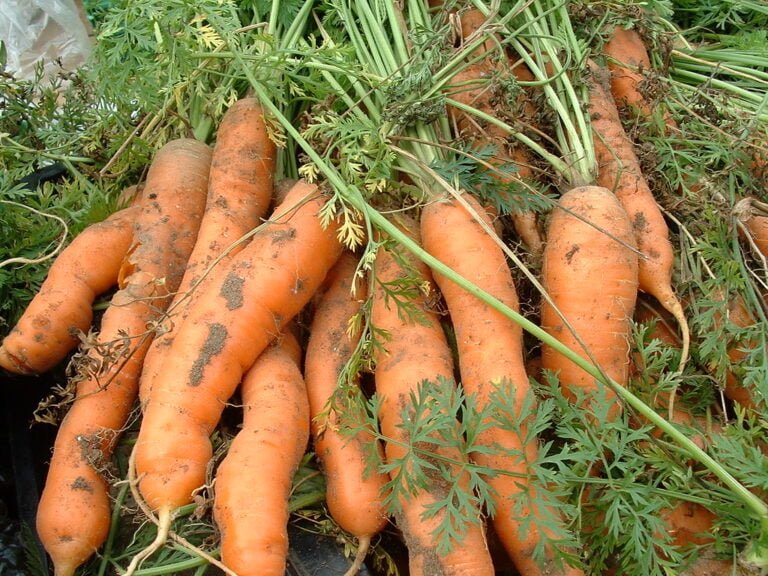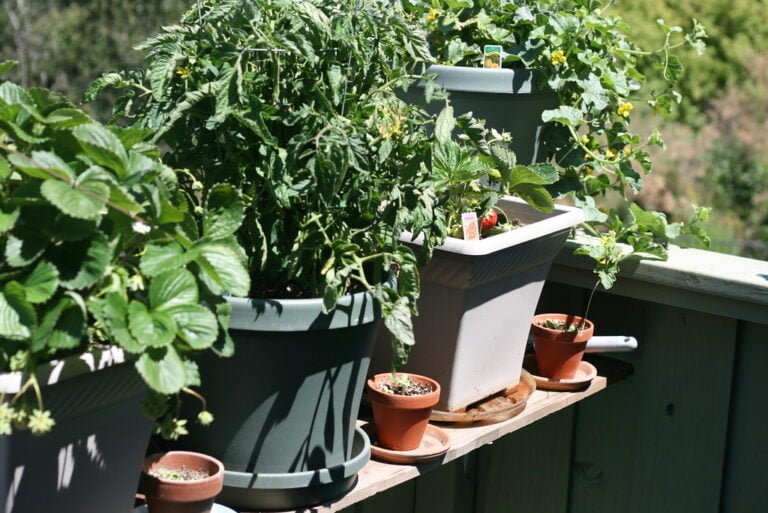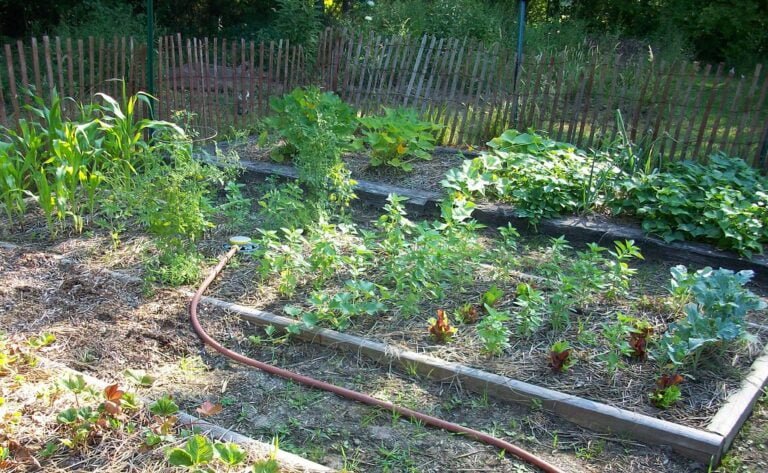Suitable Companion Plants for Brussels Sprouts
Looking to maximize the growth and health of your Brussels sprouts? Look no further! Discover the perfect companion plants that will not only enhance the flavor of your sprouts but also protect them from pests and diseases. With these suitable companions by your side, you'll be able to create a thriving and productive garden. Get ready to learn all about the benefits of companion planting and how it can transform your Brussels sprouts harvest!
Benefits of Companion Planting
When planting Brussels sprouts, you can enjoy numerous benefits by incorporating companion plants into your garden. Companion planting is a technique that involves planting different plants together to enhance their growth and protect them from pests and diseases. By choosing suitable companion plants for your Brussels sprouts, you can create a thriving and balanced ecosystem in your garden.
One of the main benefits of companion planting is pest control. Certain plants, such as marigolds and nasturtiums, emit strong scents that repel pests like aphids and cabbage worms, which are common enemies of Brussels sprouts. Additionally, planting herbs like rosemary and thyme can deter pests and attract beneficial insects like ladybugs and lacewings, which feed on harmful pests.
Companion plants can also improve soil health. Legumes like peas and beans are nitrogen-fixing plants, meaning they can convert atmospheric nitrogen into a form that is usable by plants. When interplanted with Brussels sprouts, legumes can enrich the soil with nitrogen, promoting healthy growth and increasing yields.
Furthermore, some companion plants can act as natural mulch, providing shade and retaining moisture in the soil. For example, planting low-growing plants like lettuce or spinach around your Brussels sprouts can help prevent weed growth and conserve water, reducing the need for frequent watering and weeding.
Pest Control Through Companion Planting
To effectively control pests in your Brussels sprouts garden, incorporate companion plants that repel harmful insects and attract beneficial ones. Companion planting is a natural and sustainable method to protect your Brussels sprouts from pests, reducing the need for chemical pesticides. One such companion plant is marigold. The strong scent of marigolds repels aphids, nematodes, and whiteflies, which are common pests that can damage your Brussels sprouts. Another beneficial companion plant is mint. Mint has a strong aroma that deters cabbage moths and cabbage worms. Planting mint near your Brussels sprouts can help deter these pests and protect your crop. Additionally, planting onions or garlic nearby can deter pests like aphids and spider mites. By incorporating these companion plants, you can create a pest-resistant environment for your Brussels sprouts and promote a healthy, thriving garden.
Nitrogen-Fixing Companion Plants
To further enhance the health and productivity of your Brussels sprouts garden, consider incorporating nitrogen-fixing companion plants. Nitrogen is an essential nutrient for plant growth, and it is often lacking in the soil. Nitrogen-fixing plants have a unique ability to convert atmospheric nitrogen into a form that can be used by other plants. By planting nitrogen-fixing companions alongside your Brussels sprouts, you can improve soil fertility and provide a sustainable source of nitrogen. Some excellent choices for nitrogen-fixing companion plants include legumes such as peas, beans, and clover. These plants have nodules on their roots that house bacteria capable of fixing nitrogen. As they grow, they will naturally enrich the soil with this vital nutrient, benefiting your Brussels sprouts and promoting healthy growth.
Enhancing Soil Fertility With Companion Plants
To enhance the soil fertility of your Brussels sprouts garden, incorporate companion plants that can provide additional nutrients and support healthy growth. Companion plants are a valuable addition to any garden as they can help improve soil quality and enhance the overall productivity of your vegetables. When it comes to Brussels sprouts, there are several companion plants that are known to enhance soil fertility. One such plant is legumes, like beans or peas, which are nitrogen-fixing plants. These plants have a symbiotic relationship with beneficial bacteria that convert atmospheric nitrogen into a form that plants can utilize. By planting legumes alongside your Brussels sprouts, you can increase the nitrogen content in the soil, which is essential for optimal growth. Additionally, plants like buckwheat and clover can be grown as cover crops to protect the soil, prevent erosion, and add organic matter when tilled under. These cover crops also attract beneficial insects that can help control pests in your garden. By incorporating these companion plants, you can create a healthy and fertile environment for your Brussels sprouts to thrive.
Attracting Beneficial Insects to the Garden
Attract beneficial insects to your garden for optimal Brussels sprouts growth by incorporating plants that provide a habitat and food source for these helpful creatures. Beneficial insects play a crucial role in maintaining a healthy garden ecosystem by pollinating plants and controlling pest populations. To attract these beneficial insects, consider planting companion plants that provide nectar, pollen, and shelter. Some suitable plants include dill, fennel, yarrow, and marigolds. These plants not only attract beneficial insects like bees, butterflies, and ladybugs, but they also deter harmful insects that can damage your Brussels sprouts. Planting a variety of flowers with different bloom times can ensure a continuous food source for these beneficial insects throughout the growing season. By attracting beneficial insects to your garden, you can promote a balanced ecosystem and enjoy healthier Brussels sprouts.
Companion Plants for Improved Flavor and Growth
Planting companion plants with your Brussels sprouts can enhance their flavor and promote healthier growth. By choosing the right companions, you can create a harmonious garden ecosystem that benefits all your plants. One excellent companion for Brussels sprouts is dill. Dill attracts beneficial insects such as wasps and ladybugs, which help control pests like aphids and caterpillars. Additionally, dill's strong aroma can mask the scent of Brussels sprouts, making them less attractive to pests. Another great companion plant is chamomile. Chamomile's delicate flowers attract hoverflies, which are natural predators of aphids. Furthermore, chamomile's roots help improve soil structure and increase nutrient availability for the Brussels sprouts. Lastly, onions and garlic are fantastic companions as their strong smell repels pests like aphids and cabbage worms. Planting these companions alongside your Brussels sprouts can lead to improved flavor and healthier growth.
Companion Plants to Deter Common Pests
- Plant marigolds alongside your Brussels sprouts to repel common pests. Marigolds are known for their strong scent, which repels a wide range of pests that commonly affect Brussels sprouts. These pests include aphids, cabbage worms, and flea beetles. By interplanting marigolds, you create a natural barrier that deters these unwanted insects from harming your Brussels sprouts. Marigolds also attract beneficial insects such as ladybugs and lacewings, which prey on pests, further protecting your plants. To maximize the effectiveness of marigolds, plant them evenly throughout your Brussels sprout bed, ensuring that there is at least one marigold plant for every three or four Brussels sprout plants. This strategy will help you maintain a healthy and pest-free crop of Brussels sprouts.
Companion Plants for Shading and Weed Suppression
To enhance shading and suppress weed growth, consider adding companion plants to your Brussels sprouts bed. Companion plants can provide additional benefits to your Brussels sprouts by creating a natural canopy that helps shade the soil, reducing evaporation and keeping the ground cool. This not only helps conserve moisture but also creates a more favorable environment for Brussels sprouts to thrive. Some suitable companion plants for shading and weed suppression include tall-growing crops like corn or sunflowers. These plants can provide shade and act as living mulch, effectively crowding out weeds and reducing the need for manual weeding. Additionally, plants such as clover or vetch can be interplanted with Brussels sprouts to smother weeds and add nitrogen to the soil through their nitrogen-fixing abilities. By carefully selecting companion plants, you can create a more productive and low-maintenance Brussels sprouts bed.
Companion Plants for Disease Prevention
To effectively prevent disease in your Brussels sprouts, regularly companion plant with varieties that naturally repel pests. By choosing the right companion plants, you can create a healthy and disease-resistant environment for your Brussels sprouts. One excellent companion plant for disease prevention is marigold. Marigolds emit a strong scent that repels pests like aphids, nematodes, and whiteflies. Plant marigolds around your Brussels sprouts to deter these pests and reduce the risk of disease. Another beneficial companion plant is dill. Dill attracts helpful insects such as ladybugs and lacewings, which feed on pests like aphids and caterpillars. These beneficial insects can help keep your Brussels sprouts free from harmful pests and diseases. By strategically choosing companion plants, you can create a thriving and disease-resistant garden for your Brussels sprouts.
Harvesting and Using Companion Plants With Brussels Sprouts
When harvesting and using companion plants with Brussels sprouts, incorporate them into your garden to continue the disease prevention measures discussed previously. By strategically planting companion plants alongside your Brussels sprouts, you can create a harmonious ecosystem that promotes healthy growth and minimizes the risk of pests and diseases. One suitable companion plant for Brussels sprouts is marigold. Marigolds not only add a splash of vibrant color to your garden but also help repel harmful insects like aphids and nematodes. Another beneficial companion plant is thyme, which acts as a natural insect repellent and helps deter cabbage worms and whiteflies. Additionally, planting onions or garlic near your Brussels sprouts can help ward off pests and provide a flavorful addition to your meals. Remember to space your companion plants appropriately to avoid overcrowding and provide adequate airflow for all your plants.
Conclusion
In conclusion, choosing suitable companion plants for your Brussels sprouts can greatly benefit your garden. By utilizing plants that repel pests, fix nitrogen, enhance soil fertility, attract beneficial insects, and prevent diseases, you can ensure a healthy and bountiful harvest. Additionally, companion plants can provide shade and suppress weeds, further improving the overall health of your Brussels sprouts. Don't forget to harvest and utilize these companion plants to maximize their benefits in your garden. Happy gardening!






